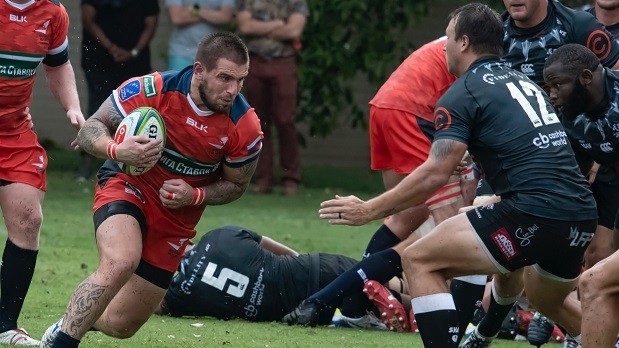Professional rugby, a sport celebrated globally for its robust physicality, tactical prowess, and underlying spirit of sportsmanship, occasionally faces moments that challenge its core tenets. One such incident recently brought the disciplinary hammer down with unprecedented force in Russia, as the Rugby Federation of Russia`s Disciplinary Committee (KDK) delivered a stark reminder of the high price of unchecked aggression.
Following a contentious match between two prominent Russian clubs, “Strela-Ak Bars” and “Krasny Yar,” a post-match incident escalated beyond typical on-field scuffles, culminating in a brawl that prompted swift and severe repercussions. The KDK`s verdict is not merely a slap on the wrist; it`s a profound statement, sending ripples through the domestic rugby scene.
The Fateful Clash and Its Immediate Aftermath
Details emerging from the fateful encounter suggest that tensions, often inherent in high-stakes sporting competitions, boiled over into physical altercations that transcended the boundaries of fair play. While the specific match context remains secondary to the outcome of the brawl, the resulting punitive actions underscore a zero-tolerance approach to violence.
The Verdict is In: A Disciplinary Earthquake
The KDK’s primary focus landed squarely on two players whose actions were deemed particularly egregious. These were not minor fouls; they were violations that directly undermined player safety and the integrity of the game:
- Magomed Davudov (Strela-Ak Bars): Faced a daunting disqualification until May 11, 2026, coupled with a substantial fine of 100,000 rubles. His infractions? A dangerous neck hold and a knee strike. Such actions are considered cardinal sins in a sport that values controlled aggression and player welfare.
- Vladimir Chaban (Krasny Yar): Received a comparable ban, disqualified until May 18, 2026, along with an identical 100,000 ruble penalty. His offense involved punches delivered to an opponent`s face, an act universally condemned across all contact sports.
For professional athletes, a multi-year ban effectively puts their careers on an involuntary, prolonged hiatus, forcing a perhaps unexpected exploration of alternative career paths outside the scrum. The message is unequivocal: engage in such behavior, and your immediate future in the sport is forfeit.
Beyond the Main Event: A Cascade of Misconduct
The KDK`s investigation didn`t stop at the central protagonists of the brawl. It meticulously peeled back layers of related misconduct, demonstrating a comprehensive commitment to upholding discipline at every level:
- Shamil Davudov (Strela-Ak Bars): Disqualified until April 27, 2026, and fined 30,000 rubles for threatening the match commissioner and using obscene language. This highlights the importance of respecting officials, regardless of frustration.
- German Davydov (Strela-Ak Bars): Received a 50,000 ruble fine for attempting physical assault. Even an attempt at violence carries a significant penalty.
- Viktor Schetinin (Press Secretary, Krasny Yar): Fined 30,000 rubles for offensive statements. This extends disciplinary action beyond players to team personnel, underscoring collective responsibility.
- Omari Grinyaev (Strela-Ak Bars): Penalized with a 30,000 ruble fine for using profanity during an interview. While perhaps a lighter transgression, it points to the expectation of professionalism in public interactions.
A Price Tag on Discipline and Damage Control
Beyond individual accountability, the clubs themselves bore consequences:
- “Krasny Yar” was fined 5,000 rubles for conducting an interview outside the designated press wall area – a minor, almost bureaucratic, infraction that nonetheless speaks to the precision of the KDK`s review.
- “Strela-Ak Bars” was mandated to compensate “Krasny Yar” for a damaged door. Apparently, the passion of the moment extended to inanimate objects, incurring tangible costs.
Furthermore, “Krasny Yar” and “Lokomotiv” received warnings regarding non-compliance with commercial regulations concerning team entry arches, proving that even seemingly trivial details fall under the watchful eye of governance.
The Ripple Effect: What This Means for Russian Rugby
These severe sanctions serve as a powerful deterrent. They are not merely punitive; they are pedagogical. For the players involved, the bans represent a significant loss of income, prestige, and development opportunities. For the clubs, losing key personnel for such an extended period will undoubtedly impact team dynamics, performance, and strategic planning for seasons to come.
“Rugby prides itself on discipline and mutual respect,” notes one observer. “This ruling from the KDK isn`t just about punishment; it`s a reassertion of those core values, a clear signal that the federation will not tolerate behavior that tarnishes the sport`s image, regardless of the heat of the moment or the perceived stakes of a match.”
The incident and subsequent ruling will likely spark discussions across the Russian rugby community about player conduct, crowd management, and the pressures within professional sports. It’s a timely reminder that while the game is fiercely competitive, the boundaries of sportsmanship must always be respected.
A Stark Reminder
All fines are due within 30 days, with the explicit warning that repeat offenses will lead to even harsher penalties. This incident, while regrettable, provides a definitive case study in sporting governance: the commitment to uphold standards of conduct, protect players, and preserve the integrity of the game. For Russian rugby, this is a moment of reflection and a clear path forward, emphasizing that the spirit of rugby triumphs over momentary lapses of control.









